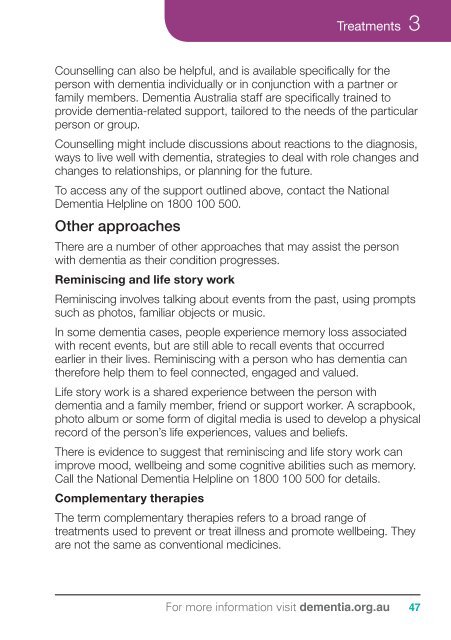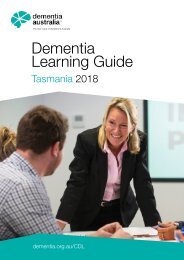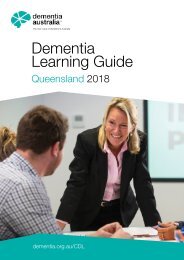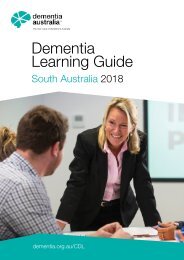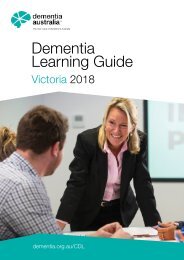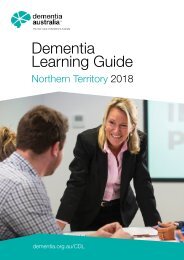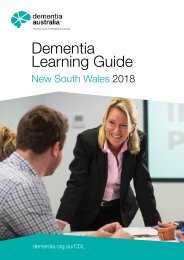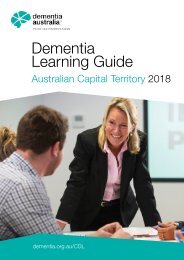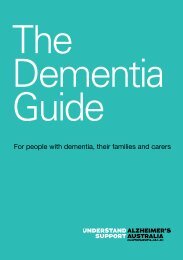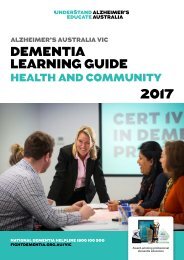Dementia Australia | The Dementia Guide
The Guide will also be used by the family and friends of someone with dementia, as it will contain information for anyone taking on a caring role. It will help people to understand more about dementia and the emotional impact of a diagnosis, the available drug treatments, and support and services that are available. It will include information about living well with dementia and about making plans for the future.
The Guide will also be used by the family and friends of someone with dementia, as it will contain information for anyone taking on a caring role. It will help people to understand more about dementia and the emotional impact of a diagnosis, the available drug treatments, and support and services that are available. It will include information about living well with dementia and about making plans for the future.
Create successful ePaper yourself
Turn your PDF publications into a flip-book with our unique Google optimized e-Paper software.
Treatments 3<br />
Counselling can also be helpful, and is available specifically for the<br />
person with dementia individually or in conjunction with a partner or<br />
family members. <strong>Dementia</strong> <strong>Australia</strong> staff are specifically trained to<br />
provide dementia-related support, tailored to the needs of the particular<br />
person or group.<br />
Counselling might include discussions about reactions to the diagnosis,<br />
ways to live well with dementia, strategies to deal with role changes and<br />
changes to relationships, or planning for the future.<br />
To access any of the support outlined above, contact the National<br />
<strong>Dementia</strong> Helpline on 1800 100 500.<br />
Other approaches<br />
<strong>The</strong>re are a number of other approaches that may assist the person<br />
with dementia as their condition progresses.<br />
Reminiscing and life story work<br />
Reminiscing involves talking about events from the past, using prompts<br />
such as photos, familiar objects or music.<br />
In some dementia cases, people experience memory loss associated<br />
with recent events, but are still able to recall events that occurred<br />
earlier in their lives. Reminiscing with a person who has dementia can<br />
therefore help them to feel connected, engaged and valued.<br />
Life story work is a shared experience between the person with<br />
dementia and a family member, friend or support worker. A scrapbook,<br />
photo album or some form of digital media is used to develop a physical<br />
record of the person’s life experiences, values and beliefs.<br />
<strong>The</strong>re is evidence to suggest that reminiscing and life story work can<br />
improve mood, wellbeing and some cognitive abilities such as memory.<br />
Call the National <strong>Dementia</strong> Helpline on 1800 100 500 for details.<br />
Complementary therapies<br />
<strong>The</strong> term complementary therapies refers to a broad range of<br />
treatments used to prevent or treat illness and promote wellbeing. <strong>The</strong>y<br />
are not the same as conventional medicines.<br />
For more information visit dementia.org.au 47


